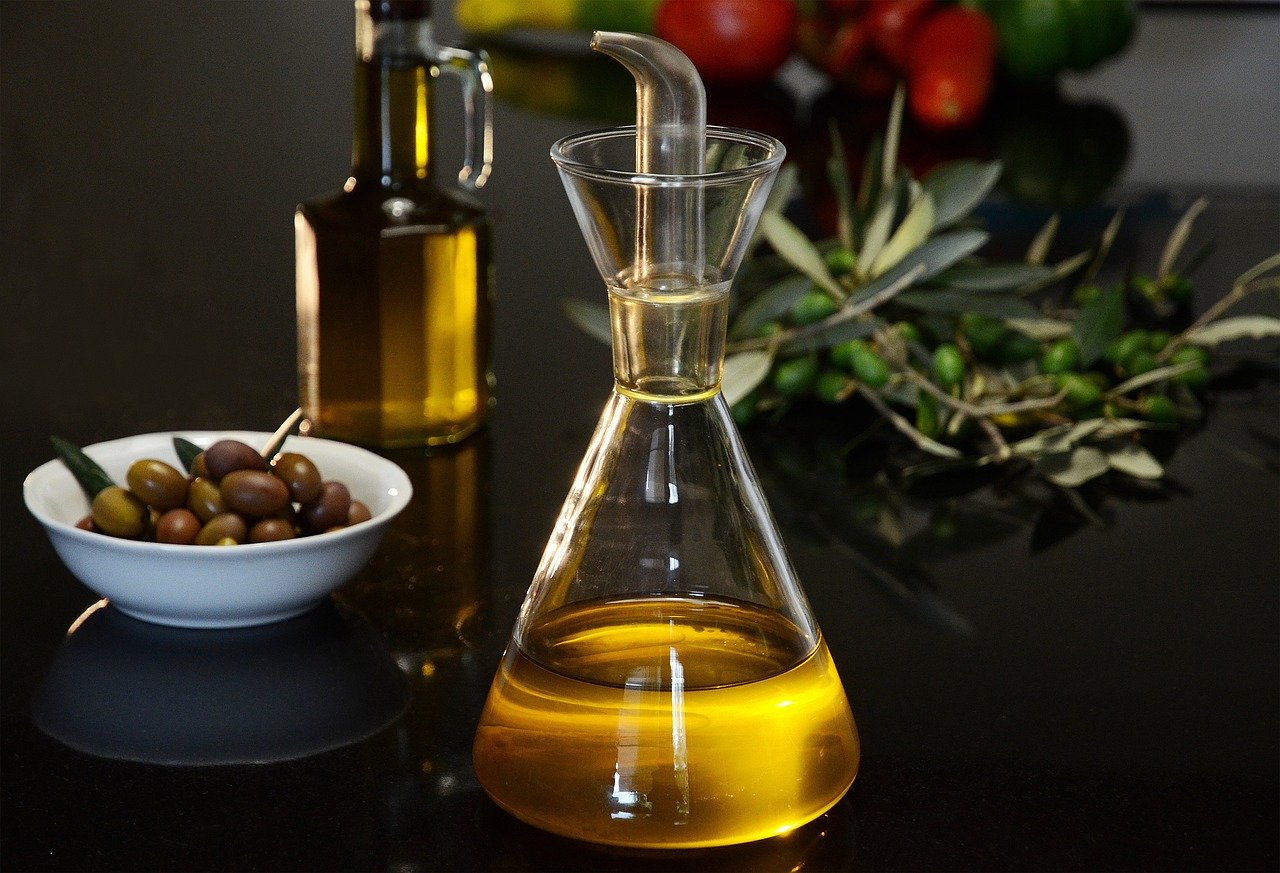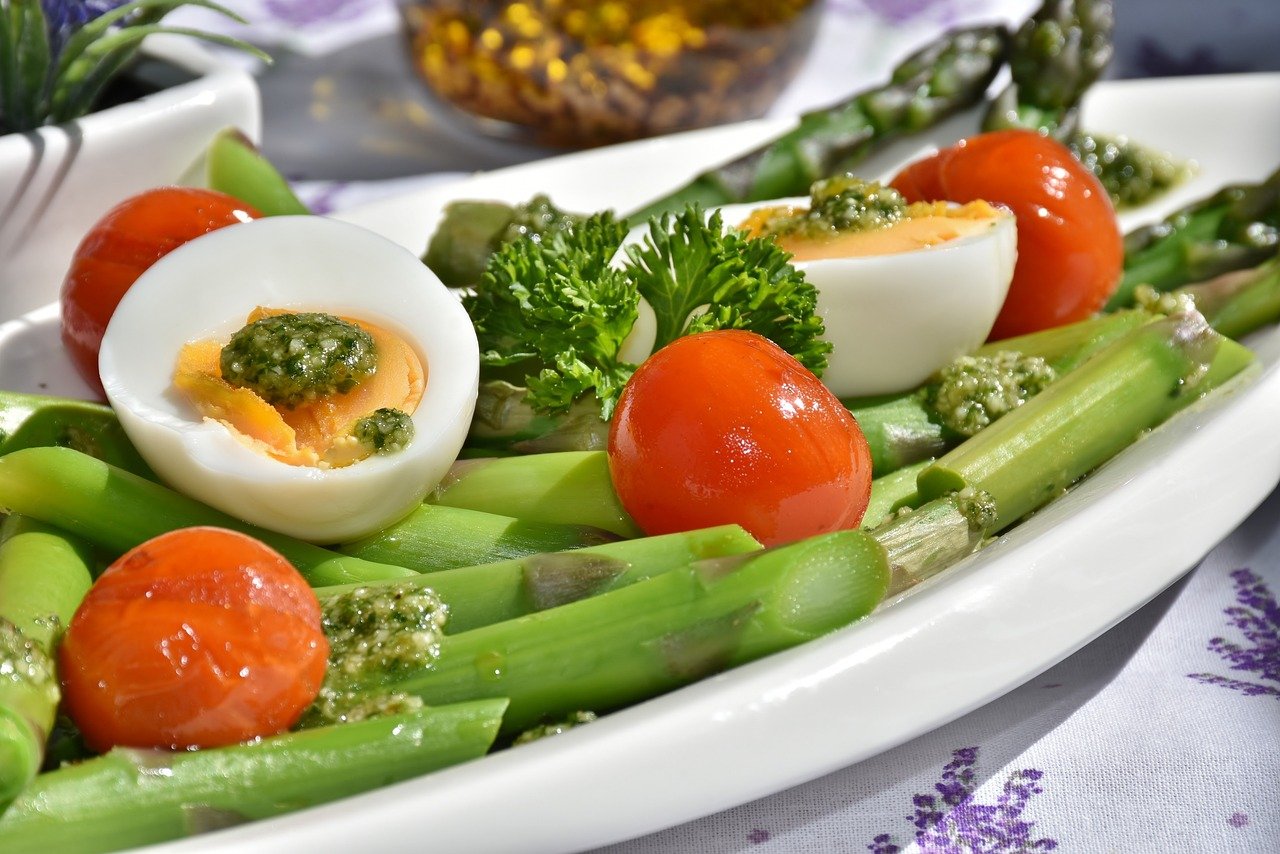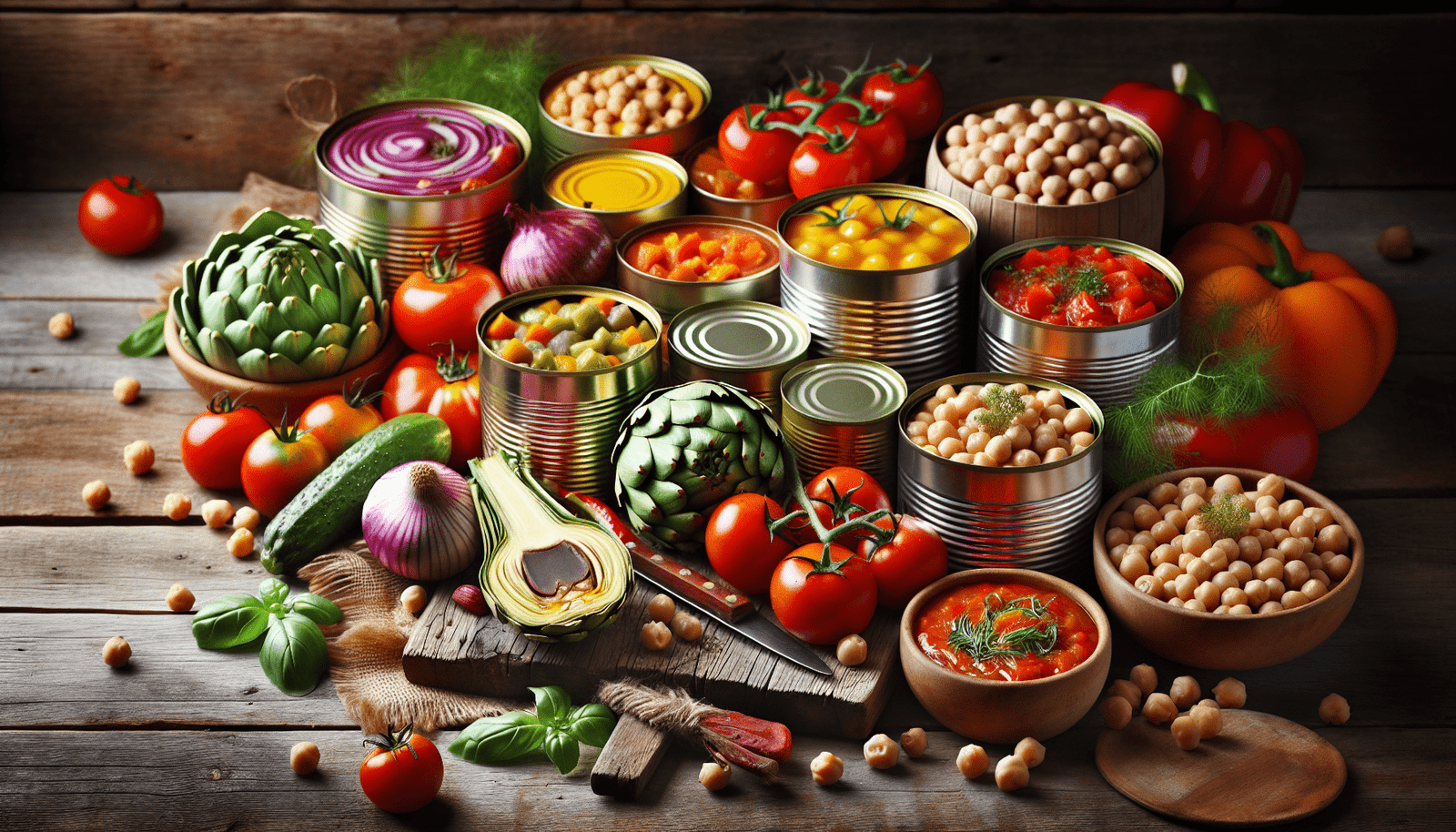Are you curious about whether canned vegetables fit into the Mediterranean diet? It’s a common question, and with the popularity of both canned goods and the Mediterranean way of eating, it’s important to clarify what works best for your health and lifestyle.

Understanding the Mediterranean Diet
The Mediterranean diet is often celebrated for its numerous health benefits, including promoting heart health, supporting weight management, and even enhancing mental well-being. Rooted in the traditional eating patterns of countries surrounding the Mediterranean Sea, this diet emphasizes:
- Whole foods: Focused on fresh ingredients that are simple and minimally processed.
- Plant-based foods: High consumption of fruits, vegetables, legumes, whole grains, nuts, and seeds.
- Healthy fats: Olive oil as a primary fat source, along with moderate amounts of fish, lean meat, dairy, and red wine.
Choosing the right foods can be both beneficial and enjoyable.
Canned Vegetables in the Mediterranean Diet
So, where do canned vegetables stand in this vibrant eating plan? It’s a question worth discussing. Canned vegetables can actually play a role in your daily meals, offering both convenience and nutrition.
Benefits of Canned Vegetables
-
Convenience: Canned vegetables are ready to use, saving you time in meal preparation. No need to wash, peel, or chop unless you want to enhance the experience.
-
Stability: These vegetables have a long shelf life, making them excellent pantry staples. You can always have a healthy option available, even when fresh produce may not be accessible.
-
Nutritional Value: While fresh vegetables are undoubtedly ideal, many canned vegetables retain comparable nutritional benefits. They are typically harvested at their peak ripeness, which can enhance their flavor and nutrient content.
-
Cost-effective: Canned vegetables can be a more affordable option compared to fresh produce, especially out of season.
As with any food, the key lies in making informed choices.
Nutritional Considerations
While canned vegetables can indeed fit into a healthy diet, there are a few nutritional aspects to keep in mind.
Sodium Levels
One of the main concerns with canned vegetables is sodium content. Many canned options contain added salt for flavoring and preservation. Here’s what to consider:
-
Choose Low-Sodium Options: Look for cans that have “low-sodium” or “no added salt” on the label. This allows you to enjoy the convenience without excessive salt intake.
-
Rinse Before Use: Rinsing canned vegetables under cold water can help reduce sodium levels, allowing you to enjoy them within the Mediterranean framework.
Added Sugars and Preservatives
Some canned vegetables may have added sugars and preservatives, impacting their healthiness. It’s always wise to:
- Read Labels Carefully: Look for varieties with minimal ingredients, ideally just the vegetable itself and water. The fewer additives, the better.
Health Benefits of Specific Canned Vegetables
Not all canned vegetables are created equal. Each type offers unique nutritional benefits. Let’s look at some common canned vegetables and their contributions to your diet.
| Canned Vegetable | Nutritional Benefits |
|---|---|
| Canned Tomatoes | Rich in lycopene, an antioxidant known for its heart health benefits. Great for sauces, soups, and stews. |
| Canned Spinach | High in iron and vitamins A and C. Versatile for adding to salads, pasta, and casseroles. |
| Canned Beans | Excellent plant-based protein and fiber. Essential for making hummus, salads, or veggie burgers. |
| Canned Corn | Provides fiber, making it a good addition to salads or salsas. Also adds sweetness and crunch. |
Including these types of canned vegetables in your meals can help you meet your nutritional needs while sticking to the principles of the Mediterranean diet.

How to Incorporate Canned Vegetables into Your Diet
Now, let’s discuss some practical ways to include canned vegetables in your meals while keeping it in line with the Mediterranean principles.
Quick Meal Ideas
Canned vegetables can be the star of some quick and delicious meals. Here are a few ideas to spark your creativity:
1. Mediterranean Canned Bean Salad
Combining canned chickpeas and kidney beans with fresh herbs, diced tomatoes, cucumber, and a drizzle of olive oil is perfect for a quick lunch.
2. Vegetable Soup
Combine canned vegetables like tomatoes, corn, and green beans with vegetable broth and spices to create a hearty soup. This is especially comforting on cool days!
3. Pasta with Spinach and Tomatoes
Cook canned spinach and tomatoes and blend them into a sauce for pasta. Finish with a sprinkle of Parmesan cheese for an extra flavor boost.
4. Stuffed Peppers
Mix canned beans, cooked rice, and spices, stuff into bell peppers, and bake. This dish is satisfying and nutritious.
Enhancing Flavor
Since canned vegetables can sometimes lack the punch of fresh ones, here are ways to enhance their flavor:
-
Herbs and Spices: Use fresh or dried herbs like basil, oregano, or thyme. Spices such as cumin or paprika can also enrich the taste.
-
Acid: A squeeze of lemon juice or a splash of vinegar can brighten flavors, making the dish more vibrant.
-
Healthy Fats: Ingredients like olive oil or feta cheese can introduce creaminess and richness, giving your dish a Mediterranean flair.
Meal Preparation
Incorporating a variety of canned vegetables into your meal prep can increase efficiency and nutrition. Consider:
-
Weekly Batch Cooking: Prepare larger portions of meals that incorporate canned vegetables, such as soups and salads. Split them into individual containers for quick lunches or dinners.
-
Mixing Fresh and Canned: Combine fresh produce with canned options to enhance both nutrition and flavor. For instance, add fresh garlic and canned spinach to a sauté for added depth.
Addressing Common Concerns
It’s natural to have some reservations about using canned vegetables in your diet. Let’s address a few of these concerns.
Nutrient Loss During Canning
One concern is nutrient loss during the canning process. It’s true that some vitamins, particularly water-soluble vitamins like vitamin C, may decrease, but many nutrients remain fairly stable. Plus, the convenience factor allows for more frequent vegetable consumption overall.
Fresh vs. Canned
Fresh vegetables are often revered for their taste and texture, but canned vegetables provide an alternative that can be equally nutritious. When fresh options are not available or convenient, canned choices allow you to maintain healthy eating without sacrificing flavor.

Choosing Quality Canned Vegetables
Selecting high-quality canned vegetables helps ensure you’re making the best choices for your health. Keep the following tips in mind:
Check the Label
Always read the ingredient list. Look for options with minimal added ingredients. The best choices are those that have the vegetable itself, water, and possibly salt.
Opt for BPA-Free Cans
Some canned goods may be packaged with BPA (Bisphenol A), a chemical linked to potential health concerns. Look for brands that specify they use BPA-free cans to prioritize your health.
Consider Organic Options
If possible, consider opting for organic canned vegetables. This can provide peace of mind regarding pesticide exposure while supporting sustainable agriculture.
Conclusion
Incorporating canned vegetables into the Mediterranean diet is not only allowed but can be a practical and nutritious choice. Being an educated consumer allows you to harness the benefits of canned vegetables while staying true to the principles of the Mediterranean way of eating.
Whether you decide to use them in your quick weeknight dinners or add them into meal prep sessions, canned vegetables offer versatility and ease. Plus, embracing a mix of fresh and canned produce can make healthy eating feel effortless and rewarding.
As you navigate your dietary choices, remember that balance and moderation are key components. Enjoy the cherished flavors of the Mediterranean using the convenience of canned vegetables, and continue to create delicious meals that nourish your body and soul.
